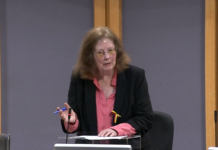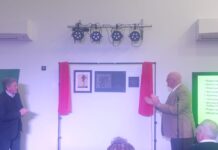The Importance of Census Records When Researching Your Family History
This is part 3, click here for part 1 and here for part 2.
Please see part 2 for previous section.
Here are some examples of pay per view sites:
- www.genesreunited.co.uk – contains birth, marriage and death indexes and census returns for England and Wales
- www.familyrelatives.com – contains birth, marriage and death indexes and census returns for England and Wales
- www.ancestry.co.uk – contains birth, marriage and death indexes and census returns for England and Wales
- www.findmypast.co.uk – contains birth, marriage and death indexes and census returns for England and Wales
- http://www.thegenealogist.co.uk – contains birth, marriage and death indexes and census returns for England and Wales
Most of the subscription sites offer free trials. By taking advantage of these offers, you usually have 14 days to check records on that site without paying. Sometimes certain records won’t be included in the offer, but Census records up to and including the 1901 Census and the Birth, Marriage and Death records, including Parish Records, are available. Some family history sites withhold the 1911 Census from the free trials.
When using the “free trial” offer, the site asks for your credit/ debit card details first and then they give you a date on which your trial offer ends. It is important to remember to cancel your free trial on or a couple of days before the date you are given, as you will be charged the cost of a full year’s subscription if you forget to cancel.
There are some excellent free sites widely used by family historians. The following three are the ones I have used the most for my own research:
- www.freebmd.org.uk for some birth, marriage and death indexes for England and Wales
- www.familysearch.org for the vast international genealogy website run by the Church of Jesus Christ of Latter-day Saints
- www.rootsweb.com for genealogy chat and all kinds of relevant information.
What Do The Censuses Tell Us?
By using the various censuses in your research, you are able to have a clearer picture of your ancestors’ lives. You can see if they were the workers who worked down the mines, off the land or at sea, or perhaps they were the ones who owned the mines, the land and the boats!
By seeing your ancestors’ occupations included on a census return, it allows you to see how some occupations are passed on through the generations of a particular family. Occupations such as shepherd, farmer and blacksmith were all occupations that tended to pass from father to son. If your ancestor was in the military and lived in military barracks, you will have details on the census form of the regiment your ancestor served in and his rank in the military.
Sometimes, instead of an occupation, you will find the words “on their own means” given instead. This meant that the person didn’t have an occupation at that time and lived off their own money. Sometimes these people had large households and plenty of servants, indicating that they were wealthy. Others simply lived off money saved or left to them by a spouse or other person in a will and lived in less luxury
We can learn a lot about our ancestors’ standard of living from the census. Certain information given for our ancestors and their neighbours, such as the number of rooms in each house, the occupations of the people living in the street and whether or not the households had servants, makes it possible to get an idea of what daily life must have been like for them.
By studying the information included in the various censuses after the 1851 Census, we are able to find out if our ancestors suffered from blindness, deafness or were unable to speak. This was the useful during my own research into my family history. I noticed on the 1851 Census that one of my great, great grandfathers was registered as blind. He had been born in 1843, so I checked the census records and found that he was recorded as blind on every census record from 1851 until the 1911 Census.
Perhaps the most important thing about the various censuses is that they allow us to track our ancestors over many years, to see how their lives changed. In my own family tree, another of my great, great grandfathers started out his working life in the 1841 Census as a 15 year old farm servant. By the 1851 Census, he was a farm labourer, as he was in the 1861 Census. By the time of the 1871 Census he was a farmer with 50 acres of land!
By studying these records we see how our ancestors had families of their own; how they enlarged their families and lost children; how poverty and poor living conditions caused illness and death. How improved job prospects and fortunes provided larger homes and a better standard of living. It’s thanks to these records surviving all these years that we are able to have a rounder view of what our ancestors’ lives were like.
Although the original census schedules were destroyed many years ago, the books were kept and eventually moved to the PRO Kew (now known as The National Archives). The books were then filmed in 1970 to prevent the increasing usage from destroying these fragile records. You may find the odd torn or damaged page but, in general, the records have survived in remarkable condition, considering the heavy usage they have had.
Census records in England and Wales are released to public viewing100 years after they were taken. This is due to privacy policies. However, some people argue that with the passing of the Freedom of Information Act in 2000, the 100 year census closure policy should be abolished.
The 1931 Census for England and Wales was destroyed in a fire, in 1942. No Census was taken in 1941 due to the Second World War.
Governments use the census to study society as a whole, but for the family historian, the census is an invaluable snapshot into the lives of our ancestors.
The next UK census will take place in March 2021.
The next historical census to be released for public viewing will be the 1921 Census, which should be available sometime between 2020 – 2022.
Help keep news FREE for our readers
Supporting your local community newspaper/online news outlet is crucial now more than ever. If you believe in independent journalism, then consider making a valuable contribution by making a one-time or monthly donation. We operate in rural areas where providing unbiased news can be challenging. Read More About Supporting The West Wales Chronicle





















